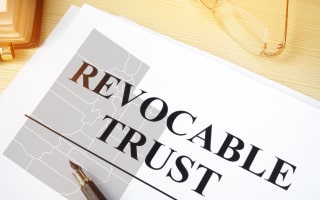How to Find Owners of Properties
in Utah

If you're thinking of acquiring real estate in Utah, property ownership in the state is regulated by Title 57 of the Utah Code. If you delve further into the Utah Code, you'll notice that property records are regulated by Chapter 3 of Title 57.
For example, Section 105 states that the address, names of owners, and legal description must be recorded for every property that's sold. The types of ownership that are allowed in Utah include sole ownership, legal entities like LLCs or trusts, and joint ownership.
When you need to find the owner of a property in Utah, this information should be recorded in the ownership records. If the home is owned by an individual, a simple property search should yield the information you're looking for. However, it can be more complicat
How Do You Find Owners of a Property in Utah?

If you're searching for a property owner in Utah, there are several methods you can use, such as public records and third-party online resources. Follow the steps below to find the information you need.
Registry of Deeds
In Utah, property information is kept in a Register of Deeds, which is an office that maintains real estate documents as well as cross-reference indexes. All documents that are stored at the Register of Deeds are available for public inspection. You can even purchase copies of these documents or access them online.
Every county in Utah has a Register of Deeds. To search the records, you'll likely need the address of the property or its parcel ID. Most counties in Utah maintain online databases that you can enter to search for specific records. You can access these databases with the links below:
Land Records Website
The first type of public record that's made for a property is a land record. These records tell you where someone lived and how long they lived there. You may be able to identify the owner's name and age when searching these records. When land is first sold to a person, the information is recorded in a grant. Any future sales of the same property are recorded in deeds.
Most counties provide online access to these records. For example, Utah County offers numerous search options, such as a parcel map. If you use the parcel map, you can input the city or property address to find the piece of land that interests you.
City or Town Assessor's Office
No matter where you live in Utah, you'll have access to a local assessor's office. The assessor's office keeps detailed Utah property records, which include tax bills and home sales. You can visit the assessor's office in person to obtain comprehensive Utah property records, which should help you find the name of the owner. Here are the websites of the assessor offices in the top 10 Utah counties:
- Salt Lake County
- Utah County
- Davis County
- Weber County
- Washington County
- Cache County
- Tooele County
- Iron County
- Box Elder County
- Summit County
Tax Records
Tax records are some of the documents that are held and maintained by county assessors. Most tax records include a history of tax payments, assessed values, and the names of current owners. To request a property tax record, use your county assessor's website. These documents are usually available alongside other Utah property records.
Title Company/Agency
In Utah, title companies are responsible for making sure that the seller of a home is legally able to complete the transaction. They'll determine if any liens, deeds, or mortgages could impact property ownership.
Title companies have access to property record databases, which means that a title search can provide you with a detailed ownership history. Depending on the company you work with, a title search can cost anywhere from $100-$200.
When you're trying to find the name of a property owner, consider browsing real estate websites that list this info. You can also ask neighbors or hire a real estate lawyer or agent to help you identify the owner's name.
![]() Commercial Services
Commercial Services
When you're searching for property records, consider accessing them through a third-party real estate site that provides this type of information. While their records aren't as comprehensive as the official ones, you should be able to locate the owner's name as well as other details about the property. For example, you can use PropertyChecker.com to look for statewide records in Utah.
To perform a search, enter the parcel ID or property address. This search can help you find current and past owners. You'll also be able to identify the people behind trusts and entities. The types of documents you'll gain access to include the following:
- Deed records
- Foreclosure records
- Building permits
- Neighborhood data
- Home values
- Property details
- Tax records
- Lien records
- Loan records
- Owner names
What Are the Different Types of Property Ownership in Utah?

Property ownership isn't a simple process that occurs when one owner buys a home and maintains control over it. Many different property structures can occur in Utah, each of which has its own legal, practical, and financial implications. While sole ownership is the most common structure, properties can also be held by companies and multiple people.
Understanding the many different forms of property ownership might make it easier for you to identify the one that meets your needs. By selecting the right ownership structure, you'll have more control over factors like access to finance, risk, probate, liability, and property taxes. While there are different types of property ownership in Utah, the most common ones are:
- Sole Ownership
- Joint tenancy with rights of survivorship
- Tenancy in common
Let's delve into the definitions, benefits, and implications of each ownership title:
-
Sole Ownership: One person owns the property in question. They have control over how the property is used and the main decisions. Sole liability for all debts and taxes that come with the property.
-
Joint Tenancy: At least two individuals have the same shares in a property. An owner's shares can be transferred upon death without probate. The joint tenancy comes to an end if one owner sells their shares.
-
Tenants by Entirety: This tenancy is used primarily by married couples. Offers protection from creditors. Decisions about the home must be mutually agreed to.
-
Community Property: This property is acquired during a marriage and is equally owned by both spouses. Each spouse has the same rights to use, sell, or manage the property. If divorce proceedings begin, the property must be divided equally.
-
Tenancy in Common: Multiple owners can hold unequal or equal shares in a property. Each owner has full control over their shares. Disagreements might arise over how to manage or sell the property.
-
Condominium Ownership: People own units in a complex with shared ownership of common areas. Easy access to ample amenities. May need to adhere to HOA guidelines.
-
Cooperative Ownership: Residents have collective ownership of the property. Reduced purchase costs. Selling shares must be approved.
-
Trust Ownership: This property is placed in a trust to eventually be transferred to beneficiaries. Provides many tax benefits. Managing and transferring the property can be complicated.
-
Life Estate: An individual owns a property while they are alive, after which it passes to another person or entity. Full control over how the property is used. Selling the home will require consent from the remainderman.
Finding the Owner of a Trust or Corporation that Owns Properties in Utah

Real estate in Utah can be owned by the following individuals and entities:
- An individual
- Partnership
- Limited liability company
- Trust
- C or S corporation
If you're interested in finding the owner of a corporation or trust that holds property in Utah, consider requesting assistance from a real estate attorney or title company. When determining the owner of a trust or corporation on your own, the process could take several steps.
For example, you may need to cross-reference public records, which include everything from property tax records to mortgages and deeds. You can also visit the local chamber of commerce to see if they have the necessary information. Consider searching business databases like Westlaw and LexisNexis as well.
Finding the Owner of a Trust in Utah
When searching for the owner of a trust in Utah, you can perform a business name availability search on the government's website. If you're unable to find the information you're searching for, consider hiring a real estate lawyer.
Finding the Owner of an LLC in Utah
All LLC entities in the state are listed on the Utah.gov website. You can search by the name of the business or the entity number to find information about the owner of the LLC.
Finding the Owner of a Corporation in Utah
To find the owner of a corporation in Utah, use the Division of Corporations and Commercial Code website. From here, you can perform a business entity search, which allows you to view information about any company that's registered in Utah. You can search with any of the following parameters:
- Business name
- Entity number
- Principal name
- Domicile name
- Registered agent name
Common Methods of Property Transfer in Utah

Deeds are legal documents that record the most important details of a property transfer. When a property is sold or gifted to someone, a deed will be drafted. This document lists the buyer as the grantee and the seller as the grantor. The sale price will be recorded as well. The following describes the three types of deeds that are commonly used in Utah real estate transactions.
-
Warranty Deed: The most common type of deed is a general warranty. This deed confirms that the grantor has ownership of the property and can sell it whenever they want. It also guarantees that there are no encumbrances or liens on the property. If someone makes a claim against the title in the future, this deed protects it.
-
Special Warranty Deed: A special warranty deed only indicates to the buyer that they are protected from title claims or defects that occurred during the seller's ownership. If a title claim arises from a situation that took place before the current owner held the property, this deed won't cover it.
-
Quitclaim Deed: A quitclaim deed is a type of property transfer that usually occurs between family members or to move properties into trusts. This deed doesn't verify that a grantor owns the property. There are no guarantees that the property doesn't contain title defects like easements or tax liens, which is why this transfer is mainly used by family members who have a certain level of trust.
You can also use a deed of trust, mortgage deed, or grant deed when transferring or selling a home.
Step-by-Step Guide to Property Transfer in Utah

If you're about to sell a property, you should first learn about the many legal and administrative processes that take place. The steps involved with transferring property ownership in Utah are detailed below. Keep in mind that Utah doesn't charge a transfer fee. Instead, sellers are tasked with paying other types of closing costs that add up to around 2.50% of the sale price.
First, identify the type of property transfer. The most common transfer type is a traditional sale, which occurs when one person sells their property to another. However, the property can also be transferred as part of a divorce or as a gift.
Once you identify the type of transfer, make sure you conduct a title search to determine if there are any liens or encumbrances that need to be addressed. You'll likely need to buy title insurance as well to protect yourself from any future title issues. The reality is, that transferring property ownership in Utah is a simple and fast process.
Whether you're using a warranty deed or quitclaim deed, this document will now be drafted. The buyer and seller will need to sign it in front of a notary public.
The document will include any existing encumbrances, the names of the buyer and seller, and the property's legal description. Once all signatures are made, the document will be recorded at the local Register of Deeds office. Every document that's submitted for recording in Utah costs $40.
You should notify your HOA, local tax authorities, and your mortgage lender after the transaction goes through. It's also a good idea to update the existing property records at the assessor's office. Once you make this update, all future tax bills will be sent to the right owner.
Property Ownership Guide
- How to Find Owners of Properties in Utah
- How Do You Find Owners of a Property in Utah?
- What Are the Different Types of Property Ownership in Utah?
- Finding the Owner of a Trust or Corporation that Owns Properties in Utah
- Common Methods of Property Transfer in Utah
- Step-by-Step Guide to Property Transfer in Utah
Utah Homeowner Lookup
- Owner(s)
- Deed Records
- Loans & Liens
- Values
- Taxes
- Building Permits
- Purchase History
- Property Details
- And More!
Utah Homeowner Lookup
- Owner(s)
- Deed Records
- Loans & Liens
- Values
- Taxes
- Building Permits
- Purchase History
- Property Details
- And More!
Property Ownership Guide
- How to Find Owners of Properties in Utah
- How Do You Find Owners of a Property in Utah?
- What Are the Different Types of Property Ownership in Utah?
- Finding the Owner of a Trust or Corporation that Owns Properties in Utah
- Common Methods of Property Transfer in Utah
- Step-by-Step Guide to Property Transfer in Utah